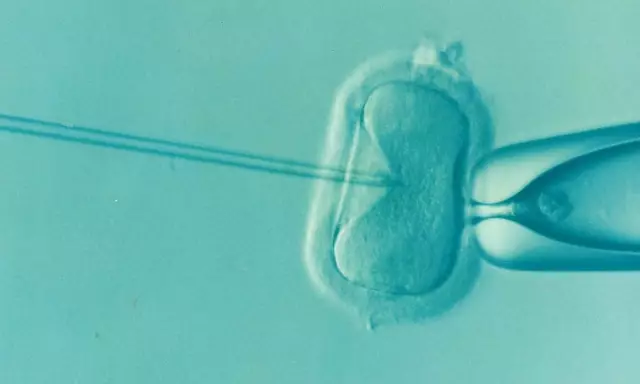- Author Rachel Wainwright [email protected].
- Public 2023-12-15 07:39.
- Last modified 2025-11-02 20:14.
5 facts about vasectomy
For many spouses, family planning is a major issue. The problem of choosing effective and safe contraceptives comes to the fore here. Russians still rarely resort to vasectomy, which is extremely popular in the United States, as well as in some European and Asian countries. The reason is simple: most men do not have comprehensive information about the specifics and consequences of this procedure. We will try to fill this gap and tell our readers what the method of surgical male sterilization is.

Source: depositphotos.com
Vasectomy is the most effective method of contraception
Vasectomy is a small surgical procedure aimed at stopping the excretion of sperm from a man's body. The operation is reduced to blockage or complete removal of the vas deferens. In this case, ejaculate continues to be produced, potency does not suffer, but conception becomes impossible, since the sperm no longer contains sperm.
Male sterilization is one of the most effective methods of contraception. The probability of restoration of fertility is only 1%.
The vasectomy is irreversible
A man who has undergone a vasectomy may try to regain fertility by having surgery to restore the patency of the vas deferens. However, this is an expensive procedure, and doctors do not guarantee its effectiveness. According to statistics, the chances of conception after such an operation are less than 50%, if the restoration of the ducts was carried out in the first two years after vasectomy.
The blockage of the vas deferens for several years after the operation does not affect the testicles in any way: sperm continue to be produced normally. Over time, this function fades away, and the man completely loses the ability to produce offspring. Therefore, a vasectomy is considered an irreversible procedure, and the decision to carry it out should be especially balanced: you need to understand all his responsibility.
Possible complications in the postoperative period
The negative consequences of vasectomy are mainly reduced to the appearance of postoperative hematomas and small edema. Sometimes there is a short-term increase in body temperature. Some patients complain of a feeling of heaviness and pain in the testicles. As a rule, all complications disappear within two to three days, if the man observes the work and rest regimen and takes into account the doctor's recommendations.
However, in rare situations, surgical intervention can cause the development of inflammatory processes, the appearance of purulent discharge from an incision or puncture. This happens only in cases where the operation is performed by a doctor who does not have the proper qualifications, or medical personnel are irresponsible in the implementation of sanitary and hygienic standards. For a man deciding to undergo surgical sterilization, choosing a reliable clinic is of paramount importance.
Sterilization does not protect a man from STDs
Having made a vasectomy, a man excludes the possibility of unwanted offspring, but in no way protects himself from sexually transmitted infections. In this sense, sexual contact can only be considered safe when using a condom. The use of such remedies is also necessary immediately after the procedure, since live sperm can be stored in the ducts for eight weeks.
Vasectomy is painless and safe, but contraindicated
The operation is performed under local anesthesia. It usually does not cause much trouble for the patient. The blockage of the ducts is done through small incisions or punctures. Recently, surgeons have preferred minimally invasive techniques, the use of which guarantees minimal injury to the body. Vasectomy is considered a less dangerous procedure than surgical sterilization of women: in the entire history of these operations, no deaths have been recorded. Long-term studies have shown that this method of contraception does not harm the hormonal sphere of a man and does not cause the development of pathologies in the long term.

Source: depositphotos.com
There are no absolute medical contraindications to surgical sterilization of men, but in the presence of severe chronic diseases (heart failure, diabetes mellitus, asthma, etc.) there is a danger of negative health consequences. Before the operation, patients are usually examined and undergo the necessary tests.
The procedure also has no age-related contraindications, but the doctor may have social objections. For example, he may refuse to have a vasectomy performed on a man under 30 who is not married and is not a father. When visiting a surgeon for the first time, it is advisable for a married patient to show the written consent of the spouse, although this is not officially required by law.
Since the results of the operation are virtually irreversible, you should not plan for surgical sterilization in the heat of the moment, in a state of argument with a sexual partner, or in strained circumstances. The decision to have a vasectomy should be voluntary, deliberate and responsible, so as not to harm your own family and not regret later about the loss of the opportunity to have children.
YouTube video related to the article:

Maria Kulkes Medical journalist About the author
Education: First Moscow State Medical University named after I. M. Sechenov, specialty "General Medicine".
Found a mistake in the text? Select it and press Ctrl + Enter.






